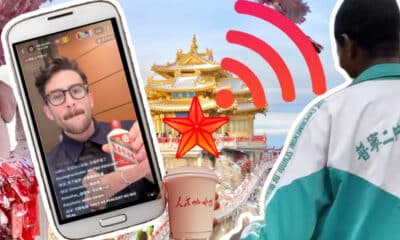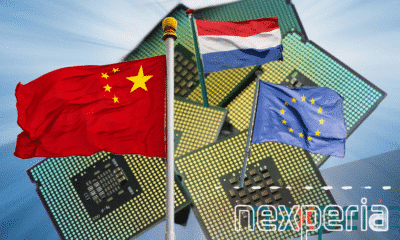China Celebs
These Are China’s Youngest Billionaires
What’s on Weibo explores who the richest kids of mainland China are: a top 10 of China’s youngest billionaires, according to the Forbes List of the World’s Billionaires.
Published
10 years agoon

After inheriting a fortune from her father, the 19-year-old Alexandra Andresen has been named the youngest billionaire on the globe by the Forbes World’s Billionaire List. Forbes has got Weibo talking about money.
The teenage girl Alexandra Andresen from Norway is worth an estimated 1.2 billion US$ according to the Forbes billionaires list. The young rich woman became trending on China’s social media site Sina Weibo under the title of ’19-year-old girl becomes world’s youngest multi-millioniare’ (19岁少女成世界最年轻亿万富翁).
In light of this news, What’s on Weibo explores who the richest ‘kids’ of mainland China are: a top 10 of China’s youngest billionaires, according to Forbes’ World’s Billionaires.
No. 1 – Wang Han (王瀚, 28 years old): 1.3 billion US$
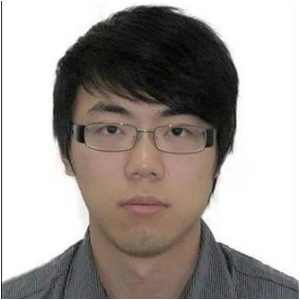
At just 28 years, Wang Han became one of the world’s youngest billionaires – he is number 7 in the international top 10. Wang became a billionaire after inheriting shares in regional airline Juneyao Air (吉祥航空有限公司) from his late father Wang Junyao (王均瑶), who was the founder. According to Forbes,
Wang Han owns 27% of the airline and 14% of department store Wuxi Commercial Mansion Grand Orient (无锡商业大厦大东方股份有限公司). The Juneyao Group also has businesses in the education and food sector. They are also active on social media; Juneyao also has a rather large fanbase on its Weibo account.
No. 2 – Wang Yue (王悦, 32 years old): 1.1 billion US$
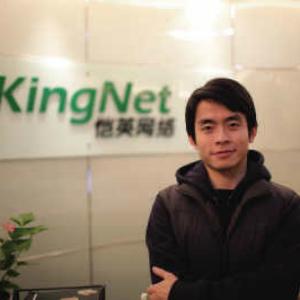
Wang Yue is a newcomer to the list of the world’s youngest billionaires, according to Forbes 2016. He is called China’s “web game billionaire”. Wang earned a fortune being an online and mobile game entrepreneur. He is the CEO of Shanghai Kingnet Technology (上海恺英网络科技有限公司), better known as Kingnet (恺英网络).
No. 3 – Cheng Wei (程维, 33 years old): 1 billion US$
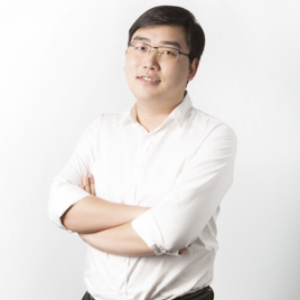
Cheng Wei (程维, 1983) is CEO of China’s Uber rival Didi Kuaidi (滴滴快滴), a transportation company which was formed in early 2015 as a merge of Cheng’s company Didi Dache and Alibaba’s Kuaidi Dache. Previous to starting his own company, Cheng worked for Alibaba for 8 years and became vice president for Alibaba’s online payment service Alipay. Cheng has a verified Weibo account, but he has not posted much since his rise to fame.
No. 4 – Yang Huiyan (杨惠妍, 34 years old): 4.9 billion US$

Born in 1981, Yang Huiyan from Guangdong’s Foshan is one of the world’s richest women. She became the largest shareholder of real estate developer Country Garden Holdings (碧桂园集团) after her father transferred his holdings to her when she was just 25 years old (also see the featured image). According to its official website, Country Gardens is “a company constantly fighting for the development of a harmonious society.”
No. 5 – Frank Wang Tao (汪滔, 35 years old): 3.6 billion US$
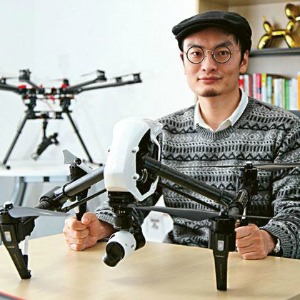
Wang Tao, also known in English as Frank Tao or Frank Wang, is the founder and CEO of Shenzhen-based DJI, the world’s largest supplier of civilian drones. Forbes describes him as “the world’s first drone billionaire”. Headquartered in China’s “Silicon Valley” Shenzhen, DJI started as a single small office in 2006, and has now turned into to a global workforce of over 3,000. Their offices can be found in the United States, Germany, the Netherlands, Japan, Beijing and Hong Kong (dji.com).
No. 6 – Zhang Bangxin (张邦鑫, 35 years old): 1.01 billion US$
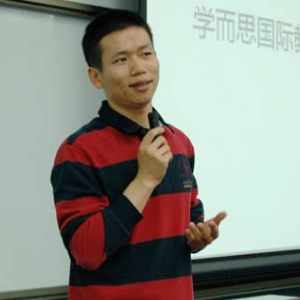
Who ever thought after school tutoring could make you rich? Zhang Bangxin (1980) is the cofounder, chairman and CEO of the Beijing-based educational tutoring firm TAL Education Group (世纪好未来教育科技有限公司). The company has been around since 2003, and it provides after-school tutoring for pupils from kindergarten to 12th grade at over 500 locations throughout China. Zhang is also an official Weibo microblogger, but, like his fellow billionaires in this list, he might be too busy making money to actually post on social media.
No. 7 – Cai Xiaoru (蔡小如, 36 years): 1.2 billion US$
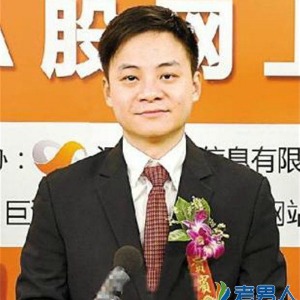
Cai Xiaoru is chairman of Tatwah Smartech (达华智能), a company that is specialized in the research, development, manufacture and distribution of radio frequency identification (RFID). The company produces, amongst others, non-contact IC cards and electronic labels. Cai became a billionaire in mid-2015, following the fast-growing stock price of Tatwah Smartech.
No. 8 – Li Weiwei (李卫伟 aka 李逸飞, 37 years): 1.3 billion US$
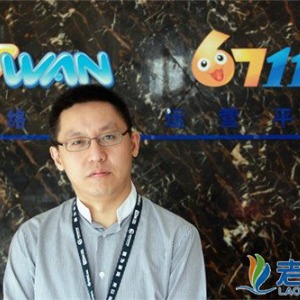
For Li Weiwei, it is all work and all play. The young entrepreneur, who was born in Chengdu city, is the vice chairman of online game company Wuhu Shunrong Sanqi Interactive Entertainment Network Technology (芜湖顺荣三七互娱网络科技股份有限公司). The company is better known under the name of 37wan, a platform that offers high-quality game products. Li Weiwei is also known as Li Yifei (李逸飞).
No. 9 – Zhou Yahui (周亚辉, 39 years): 2 billion US$

Another billionaire who got rich through the gaming industry is Zhou Yahui (1977) – the CEO of Beijing Kunlun Tech (北京昆仑万維科技股份有限公司). Kunlun Tech is one of China’s biggest web game developers and operators. In January of 2016, NY Times reported that the company paid $93 million for a 60% stake of Grindr, the largest social networking app for gay men in the world. With over 2 million daily users in 196 countries, the app has proven to be a good investment for Zhou.
No. 10 – Wu Gang (吴刚, 39 years old): 1.3 billion US$
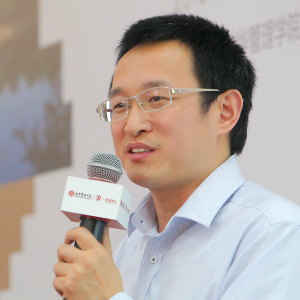
Wu Gang is co-founder and CEO of money management company Beijing Tongchuang Jiuding Investment Management (北京同创九鼎投资管理股份有限公司), better known as JDcapital (九鼎投资), “a leading investment firm with deep roots in equity investment and management”, as it describes itself.
On Weibo, some netizens have asked Norwegian billionaire Alexandra Andresen to come and visit China. With so many other billionaires, the young heiress will certainly have no reason to feel lonely at the top in China.
– By Manya Koetse
Follow @WhatsOnWeibo
Sources:
*163 (2015): http://news.163.com/15/1104/14/B7J6UOEO00014AED.html
*Jiangsu.China.com (2015): http://jiangsu.china.com.cn/html/jsnews/gnxw/2758273_2.html
*Forbes.com (various pages, see in-text links) and the China Rich List sorted by age.
Images:
Featured: Yang Huiyan (http://blog.sina.com.cn)
– http://www.ittime.com.cn/news/news_10433.shtml
– http://www.eeyy.com/jinjing/2014/
– http://uk.china-info24.com/british/tic/ht/20150729/200775.html
– http://baike.baidu.com/view/880927.htm
– http://startupbeat.hkej.com/?author=12
– http://www.cyzone.cn/a/20131114/247015.html
– http://money.163.com/15/1216/07/BAULIVAD00252G50.html
– http://www.laonanren.com/news/2015-11/104275.htm
– http://www.forbes.com/profile/zhou-yahui-1/
– http://www.gsm.pku.edu.cn
©2016 Whatsonweibo. All rights reserved. Do not reproduce our content without permission – you can contact us at info@whatsonweibo.com.
Manya is the founder and editor-in-chief of What's on Weibo, offering independent analysis of social trends, online media, and digital culture in China for over a decade. Subscribe to gain access to content, including the Weibo Watch newsletter, which provides deeper insights into the China trends that matter. More about Manya at manyakoetse.com or follow on X.

China Celebs
Beauty Influencer Du Meizhu Accused of Scamming Fan Out of $27K
Published
5 months agoon
June 27, 2025
🔥 Quick Take: Trending in China
This is a brief update from our curated roundup of what’s trending in China this week. A version of this story also appears in the Weibo Watch newsletter. Subscribe to stay in the loop.
Chinese beauty influencer and livestreamer Du Meizhu (都美竹) is facing online backlash this week after a former female fan filed a police report accusing her of scamming her out of nearly 200,000 yuan (approx. US$27,800).
The fan, known online as Sister Bing (Weibo handle @冰点人a冰点), has come forward with detailed allegations, claiming Du began swindling her in 2022.
Du Meizhu rose to national prominence in 2021 when she was 19 years old and became the first person to publicly accuse Chinese-Canadian pop star Kris Wu (吴亦凡) of rape and sexual misconduct. After at least 24 more victims also came forward, Wu was formally arrested on suspicion of rape in mid-August 2021 and was later sentenced to 13 years in prison.
It was around this time that ‘Sister Bing,’ whose real name is Ms. Zhu (朱, born 1979), started following Du Meizhu on social media. As a hard-working single mother of a daughter, she said she sympathized with Du and wanted to show her some support. In a Weibo post published in 2024, she detailed how Du Meizhu began noticing Zhu’s online interactions in early 2022 and added her as a friend on WeChat.
In private conversations, Du shared complaints about her difficult life, and as the two talked more and more, Zhu began transferring small amounts of money to help. Over time, Du said she needed money for various things—from financial support for school to legal disputes and expensive medical treatments for family members. Between 2022 and 2023, Zhu claims she transferred nearly 200,000 yuan in total.
At the end of 2023, Zhu–who works as a taxi driver–urgently needed money due to a family crisis. She reached out to Du to ask if she could repay the money. According to Zhu, she only returned 30,000 yuan (US$4,180) and refused to pay more, even though at the same time, Du was allegedly flaunting luxury brand purchases and had plans to buy a villa.
On June 25, 2025, Zhu posted an update on her Weibo account, saying she had traveled to Ulanhot City in Inner Mongolia – Du’s hometown – to seek justice and report the case to local authorities.
Du Meizhu has responded to the allegations on social media, writing that she “won’t admit to things I haven’t done.” She does not deny that Zhu gave her money.
She writes: “When she had money, she was lavishly spending it on gifts in all kinds of livestreams. Now that she’s broke, she wants it back from the streamers? After I transferred her thousands of yuan, she’s still not satisfied and is now starting to extort me. No amount of moral pressure will work. I have a clear conscience!”
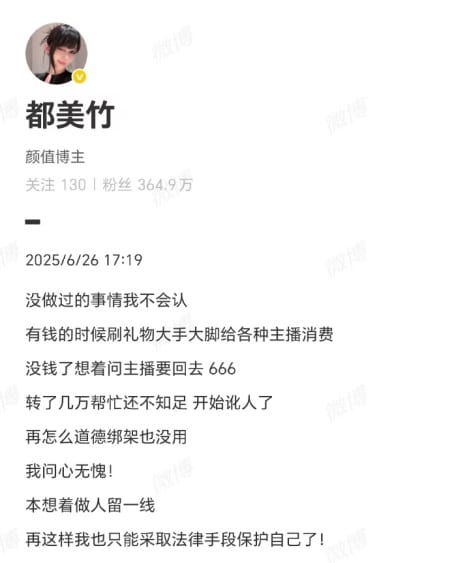
The post by Du Meizhu
The case has blown up online. One post by Ms. Zhu has already received over 133,000 likes and is still gaining traction.
But the developments surrounding the case are puzzling to some. Du Meizhu has long maintained a social media image of wealth, showcasing a lifestyle filled with Dubai travel, horseback riding, luxury food, and fashion. Why would she need to take money from a single mum? Du is being criticized not only for faking her wealth, but also for accepting so much money from a woman who clearly needed the money for her own family.

Du Meizhu social media photos.
Although the story is attracting a lot of attention online because it exposes private conversations between Du and the woman – and, frankly, many netizens just enjoy the drama, – it also says a lot about China’s thriving livestreaming industry and just how close online followers can feel to the influencers they follow. In these kinds of online communities, it is common for fans and followers to send livestreamers money or ‘virtual gifts’.
In the case of Ms. Zhu, some netizens doubt that she can prove in court that she loaned Du the money instead of gifting it to her. People also criticize Zhu: why did she spend so much money on an online influencer instead of on her own daughter?
Either way, many Chinese netizens feel that it was not right of Du Meizhu to take advantage of a single mum like that. Even if she’s not legally wrong, they feel she lacks moral integrity.
Du’s most recent social media post—featuring her in so-called “old money fashion” outfits—has only added fuel to the fire. Dozens of commenters flooded the post with demands that she repay Ms. Zhu. Though Du seemingly tried to delete the negative comments, they kept pouring in. “At this rate, there won’t be any comments left,” one user wrote.
Whether or not Du Meizhu ultimately faces legal consequences, the backlash is already taking a toll. She might escape the courtroom, but won’t be able to escape the court of public opinion.
By Manya Koetse
(follow on X, LinkedIn, or Instagram)
Spotted a mistake or want to add something? Please let us know in comments below or email us. First-time commenters, please be patient – we will have to manually approve your comment before it appears.
©2025 Whatsonweibo. All rights reserved. Do not reproduce our content without permission – you can contact us at info@whatsonweibo.com.
China Celebs
Earring Gate: Huang Yangdiantian and the 2.3 Million RMB Emerald Earrings
Online sleuths connect emerald earrings to post-earthquake business ties—sparking official investigations.
Published
6 months agoon
May 25, 2025By
Ruixin Zhang
Dear Reader,
This week, the Chinese internet exploded over a pair of earrings worn by a child actress.
In recent years, China’s netizens have been paying closer attention to so-called “nepo babies”—the children of the rich and powerful whose success often seems tied more to family connections than to talent.
Some, like Huawei’s heiress Yao Anna (姚安娜), have been criticized for using family ties to enter the entertainment industry. Others, like the infamous “Miss Dong” in the recent medical scandal, have sparked public outrage for abusing privilege to bend academic rules.
Facing economic difficulties and a tough job market, the public’s tolerance for nepotism and corruption is running increasingly thin. But when these issues touch on national trauma, including natural disasters and charity efforts, the public anger runs even deeper.
That’s why a Chinese teenage actress named Huang Yangdiantian (黄杨钿甜) recently found herself at the center of an online storm.
Earring Gate: Behind the Sparkle
Huang, born in 2007, started her career as a child actress in the 2017 historical drama Princess Agents (楚乔传).

She later gained more popularity by starring in other hit series, including Ruyi’s Royal Love in the Palace (如懿传), and also built an online following.
The recent scandal broke out after Huang shared a series of photos on Xiaohongshu, where she has around 328,000 followers. In the photos, meant to celebrate her 18th birthday, she’s seen proudly wearing a pair of sparkly emerald earrings. In the caption, she mentioned they belonged to her mom.
Sharp-eyed netizens quickly identified the earrings as a pair from the British luxury brand Graff—worth a jaw-dropping 2.3 million RMB (319,000 USD).

Digging deeper, online sleuths also found a Weibo post from 2018 showing Huang’s mother wearing a Cartier bracelet, which now retails for around 450,000 RMB (62,400 USD).
Considering Huang’s limited acting experience and modest earnings as a child actress, these luxury items raised eyebrows—and questions about where the family’s wealth was really coming from.
The “online detectives” didn’t stop there. They discovered that Huang’s father, Yang Wei (杨伟), was once a public official in Ya’an City (雅安市), Sichuan Province. After a major 7.0-magnitude earthquake struck Yan’an in 2013 (the Lushan Earthquake), Yang was reportedly involved in post-earthquake reconstruction projects, including investment and tendering.
Interestingly, in 2014, just a year after the earthquake, Huang’s family registered a film and culture company in Shenzhen with 5 million RMB (694,000 USD) in capital. Initially, the company’s legal representative was Huang’s uncle, followed by her mother in 2016. But after Yang resigned from public service, he took over as the official legal representative.
During the pandemic in 2020, Yang also registered a biotech company, which was later rebranded as a beauty and cosmetics trading business. The timing—one company during post-quake reconstruction, then another during a global health crisis—raised suspicions about whether Yang was using national emergencies as business opportunities.
It was also discovered that the Yang family currently lives in a luxury villa in one of Shenzhen’s most upscale neighborhoods, valued at over 100 million RMB (approximately 13.8 million USD).
How did Yang get enough money to start such companies and purchase a multi-million yuan villa? Even if all his official work and business ventures were legitimate, netizens pointed out it still wasn’t enough to explain the family’s enormous wealth.
Huang’s Father Responds, Netizens Dig Deeper
As the controversy grew, Huang’s father responded on May 16 via Weibo, using an account simply named “Huang Yang’s Dad” (黄杨爸爸).
In his post, he claimed that the emerald earrings were fake and of little value. He acknowledged having worked for the Yan’an government but denied any involvement in post-earthquake work, saying the online accusations against him were a case of mistaken identity—“just someone with the same name.” He even added, “I’ve never been corrupt—feel free to report me.”
But the “same name” defense didn’t hold up for long.
In a second wave of ‘detective work’ by online sleuths, netizens found a phone number listed under the name “Yang Wei” on a government website related to post-earthquake reconstruction projects in Ya’an. Some tried sending a small transfer to this number via Alipay, revealing that the profile picture linked to that account was a photo of Huang and her mother when she was younger, immediately making his “same name” explanation completely implausible.
Soon after, the account could no longer be found on Alipay, but because the number was likely tied to many services and platforms, it wasn’t easy to erase entirely. People quickly traced the same phone number to Yang’s accounts on other platforms. Around the same time, the legal representatives of the family’s companies were abruptly changed, only further fueling public suspicion.
Huang’s talent agency issued a statement calling the online rumors false but didn’t offer any concrete evidence to back that up.
By now, a local investigation by the Ya’an Discipline Inspection Commission has confirmed that Yang engaged in illegal business activities and that the birth of his second child (Huang’s younger brother) violated the one-child policy still in effect during his time as a government official. However, the investigation also denied any misappropriation of post-earthquake reconstruction funds. (link).
Most netizens find that many key questions are still left unanswered, and continue to investigate and dissect every single detail relating to Yang, Huang, and the earrings.
More than Online Gossip: Privilege & Public Grief
Some argue that the online speculation surrounding this case has now gone too far.
But for many Chinese netizens, especially younger ones, this isn’t just another scandal passively consumed by the so-called “melon-eating masses” (吃瓜群众). It strikes a nerve because it brings together several sensitive issues all at once.
Although China’s “nepotism babies” frequently spark backlash, they’re also everywhere, from business and entertainment to political and academic circles. For years, the fù èr dài (富二代), or “second-generation rich”—children of those who built fortunes after China’s economic reforms in 1978—have drawn criticism for flaunting wealth and behaving irresponsibly.
Through the years, new terms have been added to China’s nepotism lexicon: there’s xīng èr dài (星二代), referring to the children of celebrities; guān èr dài (官二代), a negative label for the children of government officials or bureaucrats; and hóng èr dài (红二代) and jūn èr dài (军二代), used to describe the children of political elites and military families.
Nepotism is closely tied to corruption—another painful issue in society that surfaces time and again. It’s particularly sensitive because it undermines more than just trust in (local) leadership; it erodes faith in meritocracy and leads the public to question the fairness of the entire system.
When these kinds of issues become entwined with national disasters and charity work—where the already privileged are seen to illegally profit from public grief for private gain—it becomes more than just a breach of public trust. It crosses a moral red line in the most extreme way.
For many young Chinese today, earthquake disasters are not distant history – they’re part of a shared collective memory that still strikes a nerve. In the comment sections of related news posts these days, many netizens recall donating money and supplies to earthquake relief efforts, now wondering whether their goodwill ever truly reached those in need.
The timing has only added fuel to the fire. The controversy erupted around the 17th anniversary of the devastating 2008 Wenchuan earthquake (5.12). Though that disaster is different from the 2013 earthquake, both struck Ya’an City, and public discussions has started to lump them together, bringing back old memories and concerns about disaster relief and public trust.
Back in 2009, Professor Deng Guosheng (邓国胜) from Tsinghua University studied where the 76.7 billion RMB (about 10.5 billion USD) in Wenchuan relief donations had gone. He found that nearly 80% of the money was controlled by the government or groups linked to it, like the Red Cross, with little transparency on how it was spent. People basically have no idea how the money they donated was spent.
In light of the recent controversy, Deng’s study and its numbers are being brought up again in many threads across Chinese social media. Today, as much as 15 years ago, the call for transparancy on how the public’s money is being used in the post-disaster time period is just as relevant.
One Weibo commenter wrote: “For context, in all of 2024, Ya’an City’s general public budget revenue was 8.4 billion RMB in total. This means that the total amount of donations and supplies after the 2008 earthquake was equivalent to 25 years of Ya’an’s current public budget revenue!” He later added: “It’s really not unreasonable at all for the public to ask questions about the authenticity of a pair of 2.3 million RMB earrings.”
Others agree: “It’s absolutely valid for everyone to focus on whether Huang Yangdiantian’s father was involved in embezzlement or bribery (..) When it comes to a tragic event like the Wenchuan earthquake, claims should especially be backed by solid evidence.”
The speculation about Huang’s family wealth goes well beyond celebrity gossip or a “nepo baby” narrative; it reflects a deeper call for clean governance and stricter oversight of how public and charitable funds are managed and spent.
As for Huang, the consequences of her glamorous photoshoot and the controversy it sparked are already unfolding. While her father has now become the target of further formal investigation by disciplinary authorities, it’s rumored that Huang has been removed as the female lead for the historical drama Peacock Bone (雀骨), as well as casting uncertainty over the viability of some of her upcoming projects.
At least we almost certainly know one thing: she won’t be wearing those earrings again any time soon.
Best,
Ruixin Zhang & Manya Koetse
Subscribe
Eye on Digital China is a reader-supported publication by
Manya Koetse (@manyapan) and powered by What’s on Weibo.
It offers independent analysis of China’s online culture, media, and social trends.
To receive the newsletter and support this work, consider
becoming a paid subscriber.

Get in touch
Have a tip, story lead, or book recommendation? Interested in contributing? For ideas, suggestions, or just a quick hello, reach out here.

Signals: Hasan Piker’s China Trip & the Unexpected Journey of a Chinese School Uniform to Angola

About Eye on Digital China — Powered by What’s on Weibo

China Trend Watch: Japan Tensions, Nexperia Fallout, Yunnan’s ‘Wild Child,’ & “Modern Opium”

Eye on Digital China: How Chinese Social Media Evolved from the Blog Era to the AI-driven Age

Trump and Takaichi: The Unexpected Love Affair

The Wong Kar-wai Scandal Explained: The Dark Side of ‘Blossoms Shanghai’

From Schadenfreude to Sympathy: Chinese Online Reactions to Charlie Kirk Shooting

From Nobel Farewell to ‘VIP Toilets’: What’s Trending in China

From Tents to ‘Tangping Travel”: New Travel Trends among Young Chinese

China’s “Post Parade Afterglow”: 6 Social Media Trends
Popular Reads
-

 China Memes & Viral4 months ago
China Memes & Viral4 months agoHidden Cameras and Taboo Topics: The Many Layers of the “Nanjing Sister Hong” Scandal
-

 China Insight7 months ago
China Insight7 months agoUnderstanding the Dr. Xiao Medical Scandal
-

 China Memes & Viral11 months ago
China Memes & Viral11 months agoOur Picks: Top 10 Chinese Buzzwords and Phrases of 2024 Explained
-

 China Digital10 months ago
China Digital10 months ago“Dear Li Hua”: The TikTok/Xiaohongshu Honeymoon Explained

